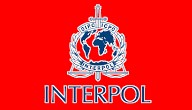02 December 2021
Interpol; Another Crisis
Presidents and red notices.
By Neil Tidmarsh

Imagine you’re the all-powerful leader of a one-party state (a pleasant daydream to sustain you through many a long, boring and inconclusive meeting). You tolerate no opposition to your policies. You allow no challenge to your authority. Internal dissent is easily crushed, thanks to your massive, ruthless and over-resourced security services, your brutal police force, your well-rewarded and hence loyal army, your corrupt judiciary, your many overcrowded prisons. But what about external dissent? How on earth do you keep tabs on those opposition politicians, political activists and independent journalists who have fled abroad and might continue to criticise you and your regime while in exile? If only there was a global organisation which could help you to keep an eye on them, a system which obliged other governments around the world to track and limit their movements…
According to some accounts, such an organisation and system does indeed exist – Interpol and its ‘red notice’ warrants.
Nearly two hundred countries are members of Interpol, the international crime-fighting network which enables co-operation and information-sharing between police and law-enforcing agencies around the globe. Any member state can issue a ‘red notice’ about a citizen suspected of criminal activities who is at large outside its borders. This notice requests other members to track the suspect on behalf of the issuing member. Subjects of a red notice could be placed under surveillance and detained at airports, and although not actually arrested could find themselves subjected to extradition proceedings and their assets frozen. Interpol doesn’t investigate such requests, it simply circulates them.
The use of such requests for political rather than crime-fighting purposes is supposed to be banned, but many regimes manage to muddy the differences between the two. There are allegations that the Maduro regime in Venezuela has used them against opposition activists in exile; that Beijing has targeted Uighur dissidents and Hong Kong protesters; that Turkey has targeted militant Kurds and followers of the anti-Erdogan cleric Fethullah Gulen. Tajikistan and Russia are also enthusiastic users. Interpol did actually suspend the Assad regime in Syria from the system in 2012 but has recently reinstated it, so exiled opponents of Assad are now worried that the government might use red notices to track them down.
“The fact is that the international police network has been ambushed by autocrats who want to hunt down opponents and critics living abroad” wrote Roger Boyes in The Times last week. “Interpol doesn’t work because its constitutional commitment to political neutrality is unenforceable.”
Interpol’s 89th General Assembly took place in Istanbul this week. Almost 500 politicians and police chiefs from the member states met to vote for its new president. The presidential term is four years, but the outgoing president, Kim Jong Yang of South Korea, had only served two years, to complete the four year term of the president elected in 2016, China’s Meng Hongwei, who disappeared halfway through his term; he was mysteriously summoned back to Beijing in 2018 and no one outside China – not even his own wife and family, not even Interpol itself – knows for sure where he is now.
This conference would appear to have been a good opportunity for Interpol to put its house in order after the Meng Hongwei crisis and the long-standing accusations about misuse of its red notices. If so, it seems to have been an opportunity wasted; the election of the new president has triggered yet another crisis for the organisation.
Major General Ahmed Naser al-Raisi, the leading law officer of the United Arab Emirates, won the election, with 70% of the votes in the final round. But he has been accused of torture. Human rights groups such as Human Rights Watch and the Gulf Centre for Human Rights lobbied against his candidature, claiming that he is ‘part of a security apparatus that continues to target peaceful critics’. Matthew Hodges – the UK academic who was arrested and accused of spying and detained in police custody for more than six months in 2018 while conducting research in the UAE – has filed a lawsuit against Mr Raisi. Mr Hodges claims that he was beaten, tortured, held in solitary confinement, forced to sign a confession and given a life sentence, and that Mr Raisi “allowed all of these things to happen to me.” Mr Hodges’ verdict on the election’s result was “This is a sad day for international justice.” Another Briton, Ali Issa Ahmad of Wolverhampton, has also launched a legal case against Mr Raisi – he claims that he was beaten, tortured and deprived of water, food and sleep following his detention in the UAE in 2019 for wearing a t-shirt decorated with the flag of Qatar. And there are more legal cases against Mr Raisi in four other countries.
The new president has promised to “build a more transparent, diverse and decisive organisation that works to ensure safety for all.” But it remains to be seen whether his presidency will manage to refute Roger Boyes’ claims that red notices are “a gaping loophole” which “turns the organisation into a frequent accomplice of repressive regimes” and that Interpol “isn’t fit for most of its modern missions.”
Cover page image – pixabay.com


